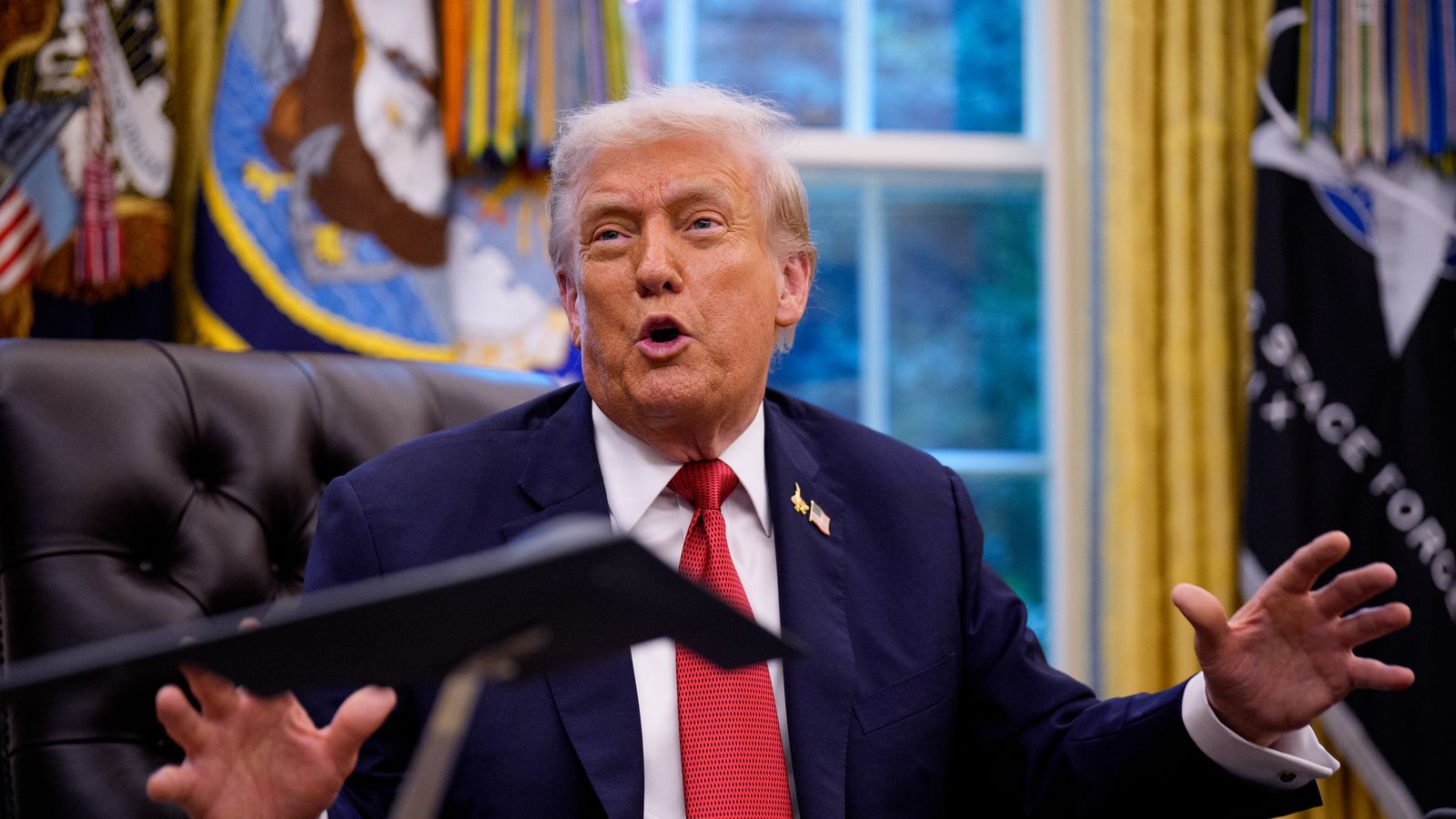The announcement of sending federal personnel to Portland has reignited national debates about immigration enforcement, public safety, and the role of federal authority in local jurisdictions.
La decisión de enviar tropas a Portland marca un nuevo capítulo en las tensiones actuales entre el gobierno federal y algunas administraciones locales. Esta acción se presentó como un paso necesario para garantizar la seguridad de las instalaciones de Inmigración y Control de Aduanas (ICE), que han sido cada vez más el centro de manifestaciones y críticas. Al poner el énfasis en la seguridad y el orden, la administración busca justificar una presencia federal en una ciudad donde tanto los funcionarios como muchos residentes se han manifestado abiertamente en contra de tales intervenciones.
Federal objectives and the reasoning behind the decision
The stated purpose of the deployment is to safeguard federal property and personnel from potential threats. In recent years, ICE offices have been at the center of heated protests, with activists calling attention to immigration policies they view as unjust and harmful. Demonstrators argue that these facilities symbolize a broader system of enforcement that separates families and places vulnerable communities under constant fear of detention.
For federal officials, however, the narrative is different. They argue that failing to protect ICE facilities would embolden disruptive groups, undermine the rule of law, and threaten the functioning of essential government services. By sending federal troops, the administration signals a willingness to assert control in areas where it perceives local authorities are unable or unwilling to maintain order.
Este cambio representa una tendencia más amplia en la que el poder federal se ha afirmado de manera más enérgica en las disputas sobre la aplicación de la ley de inmigración. También subraya la continua divergencia entre las políticas de Washington y la postura de muchos gobiernos locales, especialmente en ciudades que se han declarado como refugios para inmigrantes.
Local response and community concerns
The sending of federal forces has provoked significant responses from local authorities, civil liberties organizations, and residents in Portland. Municipal representatives have voiced worries that a military-like presence might heighten tensions instead of alleviating them. Numerous people are concerned that this move could trigger clashes between the community and federal agents, leading to more disorder and diminishing confidence in governmental bodies.
For locals, the action prompts inquiries concerning constitutional entitlements, the right to express oneself freely, and the equilibrium between protection and individual freedoms. Detractors claim that deploying soldiers close to protests might discourage legitimate demonstrations and label opposition as criminal. Additionally, they worry that the heightened militarization of national enforcement might exacerbate community divisions, fostering an atmosphere of fear instead of security.
Supporters of the deployment, on the other hand, maintain that ensuring the protection of federal facilities is a legitimate responsibility of the government. They argue that without intervention, property damage and violent clashes could continue unchecked, undermining both security and stability. This contrast in perspectives underscores the broader ideological divide within the country about the appropriate role of government in addressing social conflict.
Broader implications for national politics
The decision to send troops to Portland cannot be viewed in isolation. It is part of a larger pattern of federal responses to protests, immigration debates, and political polarization in the United States. By positioning the protection of ICE facilities as a matter of national security, the administration frames the issue not only as a local concern but also as a symbol of its broader commitment to law and order.
This approach resonates with supporters who view strong enforcement as essential to maintaining sovereignty and stability. At the same time, it intensifies criticism from opponents who see such measures as authoritarian and dismissive of democratic values. The clash of narratives has become a defining feature of political discourse, shaping how Americans interpret both immigration policy and the use of federal power.
Looking ahead, the presence of federal troops in Portland could set a precedent for similar interventions in other cities. If successful in preventing disruptions, the strategy may encourage broader applications of federal authority in contexts where local governments resist cooperation with national policies. Conversely, if tensions escalate and unrest worsens, the move may reinforce arguments that such deployments undermine public trust and inflame divisions rather than resolve them.
Implications for the coming times
Ultimately, the choice to deploy soldiers to Portland brings to light more profound questions concerning governance, democracy, and national identity. It compels Americans to face the challenge of balancing the protection of institutions with the respect for individual rights, as well as understanding the boundaries of federal involvement in local issues. For Portland, this signifies dealing with a time of increased observation, where the city emerges as both a symbol and a front in a broader political conflict.
For the government, the rollout provides a chance to demonstrate its commitment to safeguarding safety and order, despite the potential backlash over exceeding limits. For locals, activists, and community leaders, it signifies a test of preserving communal principles while dealing with the impact of national authority.
The debate highlights the interconnection between immigration control, community safety, and political identity, which influence not only regional disputes but also the overall direction of the United States. It is unclear if deploying troops will bring about stability or escalate tensions, yet its effects will be felt well beyond Portland in the ongoing discussion regarding the government’s part in molding the country’s future.



